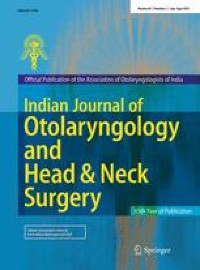Abstract
According to the importance of management of obstructive sleep apnea syndrome by otolaryngologists, this study was designed to investigate knowledge, attitudes and practice of junior and senior residents of otolaryngology and evaluate the effect of current residency training program on choosing the first lines of treatment. A total of 110 residents of otolaryngology were selected. Our study tools were obstructive sleep apnea knowledge and attitudes (OSAKA and OSAKA-KIDS) questionnaires. The participants were classified as junior and senior. Senior residents had significantly higher total knowledge score for OSAKA based on independent t test (12.73 Vs. 10.52). No significant difference was observed for OSAKA-KIDS (11.31 Vs. 10.69). The most frequent choice for the first line was CPAP (63.8%) and weight loss (41.5%) among junior and senior residents, respectively. Although the knowledge of otolaryngology residents increased during their program, the choice of first line treatment in obstructive sleep apnea was different between junior and senior residents. We found a need for further multidisciplinary education for residents especially in the management of sleep apnea particularly toward CPAP usage and this syndrome in pediatrics.



No comments:
Post a Comment